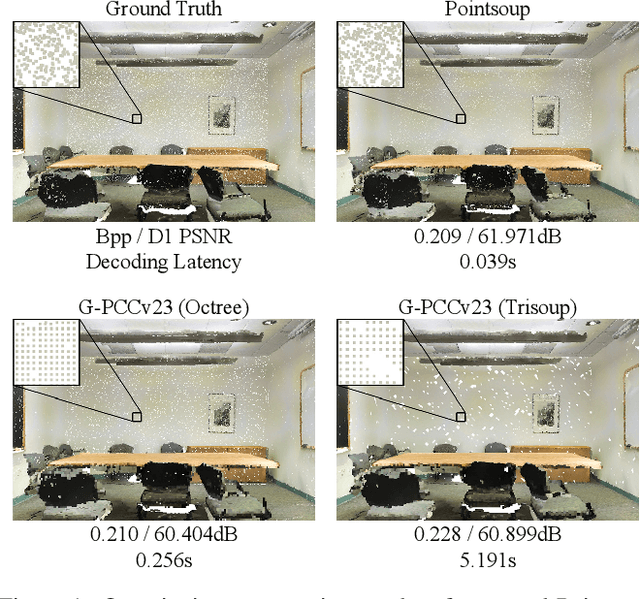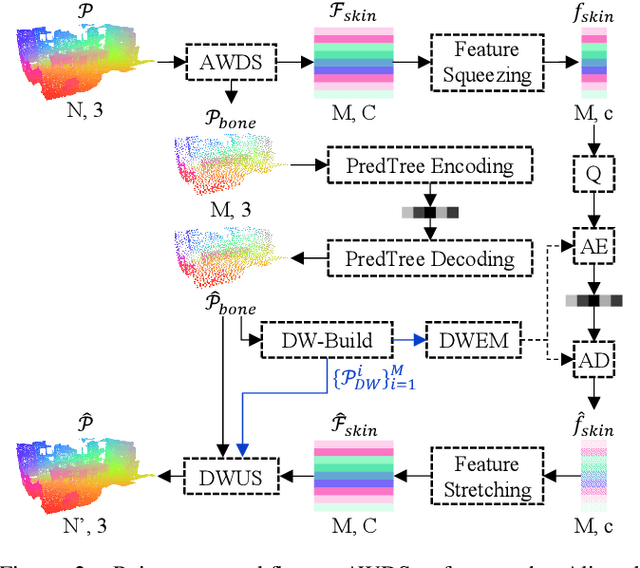Pointsoup: High-Performance and Extremely Low-Decoding-Latency Learned Geometry Codec for Large-Scale Point Cloud Scenes
Paper and Code
Apr 21, 2024



Despite considerable progress being achieved in point cloud geometry compression, there still remains a challenge in effectively compressing large-scale scenes with sparse surfaces. Another key challenge lies in reducing decoding latency, a crucial requirement in real-world application. In this paper, we propose Pointsoup, an efficient learning-based geometry codec that attains high-performance and extremely low-decoding-latency simultaneously. Inspired by conventional Trisoup codec, a point model-based strategy is devised to characterize local surfaces. Specifically, skin features are embedded from local windows via an attention-based encoder, and dilated windows are introduced as cross-scale priors to infer the distribution of quantized features in parallel. During decoding, features undergo fast refinement, followed by a folding-based point generator that reconstructs point coordinates with fairly fast speed. Experiments show that Pointsoup achieves state-of-the-art performance on multiple benchmarks with significantly lower decoding complexity, i.e., up to 90$\sim$160$\times$ faster than the G-PCCv23 Trisoup decoder on a comparatively low-end platform (e.g., one RTX 2080Ti). Furthermore, it offers variable-rate control with a single neural model (2.9MB), which is attractive for industrial practitioners.
 Add to Chrome
Add to Chrome Add to Firefox
Add to Firefox Add to Edge
Add to Edge